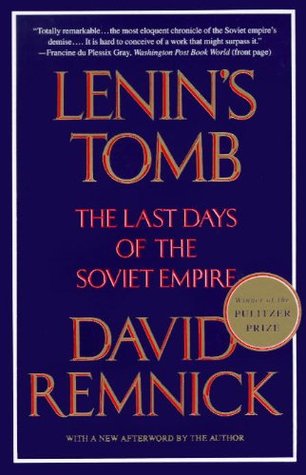More on this book
Community
Kindle Notes & Highlights
the “friendship of peoples,” the relationship between Moscow and Warsaw, was one based on violence, an occupier’s reign over its satellite.
“Dear Leonid Ilyich: A language is a much more ancient and inevitable thing than a state. I belong to the Russian language. As for the state, from my point of view, the measure of a writer’s patriotism is not oaths from a high platform, but how he writes in the language of the people among whom he lives.… Although I am losing my Soviet citizenship, I do not cease to be a Russian poet. I believe that I will return. Poets always return in the flesh or on paper.”
Molotov-Ribbentrop Pact,
The Party language had a ruinous effect on Russian,
Anna never got ten years. She married Bukharin, and they lived in the Kremlin in an apartment that Stalin had abandoned after his wife committed suicide.
They wore black T-shirts, a symbol that linked them to the Black Hundreds, the anti-Semitic mob that carried off
rejected the Blood Libel and set Beilis free.
That way history remains a handmaiden of propaganda and an extension of policy rather than a sphere of knowledge on the level of science or literature.
Aleksei Yablokov’s survey of ecological disasters,
“There Is No Other Way,”
Again the hands of the clock are nearing The unforgettable hour. I see, hear, touch All of you: the cripple they had to support Painfully to the end of the line; the moribund; And the girl who would shake her beautiful head and Say: “I come here as if it were home.” I should like to call you all by name, But they have lost the lists.… I have woven for them a great shroud Out of the poor words I overheard them speak. I remember them always and everywhere, And if they shut my tormented mouth, Through which a hundred million of my people cry, Let them remember me also.… And if ever in this
...more
Yevgenia Ginzburg’s memoirs Journey into the Whirlwind and her son Vasily Aksyonov’s novel The Burn.
Though his preferred instrument of enculturation was the pistol, he told the Communist Party that cinema was “the greatest means of mass agitation.”
They ‘dealt with’ the Czechoslovak situation the same way that at one time certain reptiles ‘dealt with’ the coming age of mammals. The reptiles bit at the air, gnashing their teeth in the same ether that was literally seething with the plankton of
an independent, post-Soviet Ukraine may be years off, the old regime collapsed, practically and metaphorically, at 1:23 A.M., April 26, 1986, the moment of the nuclear accident at Chernobyl.
For thousands of believers and nonbelievers in the city of Moscow, the first portent of the grim year ahead came with the swing of an ax in the village of Semkhoz.
The churches were no longer the domain only of ancient women with childhood memories of a czarist world.
Gorbachev returned to the Russian Orthodox Church its ruined monasteries and cathedrals. Synagogues and mosques reopened. But just as the attempt at political reform slammed into one wall of resistance after another, the revival of spiritual life could not, in an instant, transcend a history of political repression.
I’m not sure it is possible to describe just how hard it is to acquire a reputation as a drunk in Russia.


